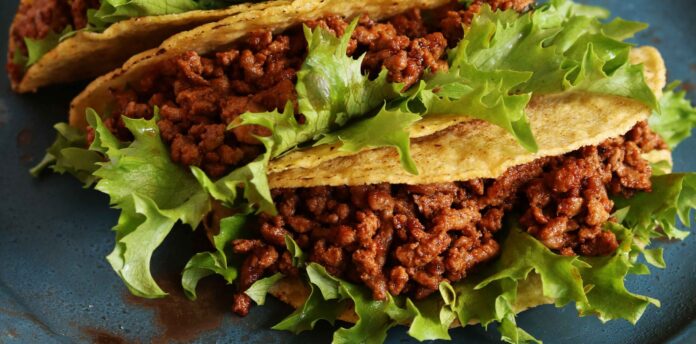Quick Answer: No, dogs should not eat taco seasoning! It can be dangerous and potentially toxic for your furry friend.
Hey there, fellow pet parents! If you’re here because your pup just went nose-first into some taco seasoning or you’re wondering if sharing your Taco Tuesday treats is okay, I’ve got the full scoop for you. Let’s dive into everything you need to know about dogs and taco seasoning!
Why Taco Seasoning is a Big No-No for Dogs
Listen up, fam – taco seasoning might be amazing for our taste buds, but it’s basically a packet of trouble for our four-legged friends. Here’s why
1. Dangerous Ingredients
-
Onion and Garlic Powder
- These are super toxic to dogs
- Can cause anemia
- Even small amounts can make your pup sick
-
Salt
- Way too much sodium for doggy bodies
- Can lead to sodium poisoning
- Makes dogs super thirsty and might cause dehydration
-
Chili Powder and Spices
- Can upset their tummy big time
- Might cause burning sensation
- Too spicy for their sensitive digestive system
What Happens If Your Dog Eats Taco Seasoning?
Oh snap! Did your furry friend just gobble up some taco seasoning? Here’s what might happen:
Immediate Symptoms:
- Excessive thirst
- Vomiting (yikes!)
- Diarrhea
- Stomach pain
- Lethargy
- Drooling more than usual
Serious Symptoms to Watch For:
- Weakness
- Pale gums
- Rapid breathing
- Collapse (in severe cases)
What to Do If Your Dog Ate Taco Seasoning
Step 1: Don’t Panic! (But Act Fast)
First things first – try to figure out how much they ate. Was it:- A whole packet?- Just a lick?- Some seasoned meat?
Step 2: Take Action
- Remove any remaining seasoning
- Give them fresh water
- Call your vet ASAP
- Monitor their behavior
Step 3: Veterinary Care
Your vet might recommend:- Inducing vomiting (don’t do this at home!)- IV fluids- Monitoring blood work- Supportive care
Prevention Tips (Because Nobody Wants a Taco Emergency!)
1. Kitchen Safety
- Keep seasonings in closed cabinets
- Clean up spills immediately
- Don’t leave food unattended
2. Safe Alternatives
Want to give your pup something special? Try these instead:- Plain, cooked lean meat- Dog-safe treats- Vegetables like carrots or green beans
The Real Talk About Dogs and Human Food
Look, I get it – those puppy eyes can be hard to resist! But here’s the deal: our furry friends aren’t built to handle the same seasonings we love. Their digestive systems are way different from ours.
Safe Human Foods for Dogs:
- Plain cooked chicken
- Plain ground beef (no seasoning!)
- Some fresh vegetables
- Plain rice
Always Avoid:
- Seasoned foods
- Spicy stuff
- Processed meals
- Fast food
Common Questions About Dogs and Taco Seasoning
Q: My dog ate a tiny bit of seasoned meat – should I worry?
A: Small amounts might just cause mild tummy upset, but keep an eye on them and call your vet if you’re concerned.
Q: Can I give my dog plain taco meat?
A: Plain, cooked ground beef is okay, but skip ALL seasonings!
Q: How long does taco seasoning poisoning take to show up?
A: Symptoms can appear within 30 minutes to several hours after eating.
The Bottom Line
Y’all, let’s keep it real – taco seasoning and dogs just don’t mix! While a tiny accidental lick probably won’t cause major drama, it’s better to be safe than sorry. Keep those spicy seasonings far away from your furry friends and stick to dog-friendly treats instead.
Quick Tips to Remember:
- Store seasonings safely
- Clean up spills right away
- Have your vet’s number handy
- When in doubt, leave it out!
Remember, our pups trust us to keep them safe and healthy. Sure, they might give us the sad eyes when we’re enjoying our tacos, but showing love doesn’t mean sharing everything we eat. Keep the taco seasoning for yourself and give your dog proper treats instead!
Stay safe and keep those tails wagging! And hey, if you’re ever unsure about what your dog can eat, it’s always better to check with your vet first. Better safe than sorry, am I right?
Disclaimer: This article is for informational purposes only and isn’t a substitute for professional veterinary advice. If your dog has eaten taco seasoning or any other potentially harmful substance, please contact your veterinarian immediately.












